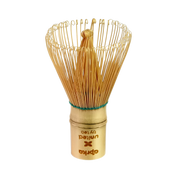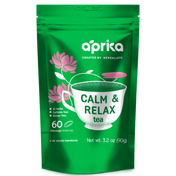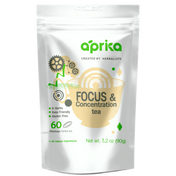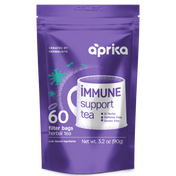What Is Hojicha?
Hojicha is a traditional Japanese green tea made by roasting green tea leaves, often older leaves, at high temperatures, typically around 200°C, in porcelain vessels. Unlike most Japanese green teas, which are steamed to prevent oxidation and preserve their green color, hojicha undergoes a roasting process that turns the leaves reddish-brown and changes the flavor profile. The result is a tea that shifts from grassy or vegetal notes to offer a warm, nutty, and slightly smoky flavor, with hints of roasted grain or even caramel. This process also significantly reduces the caffeine content, making hojicha a popular choice for those seeking a gentle and soothing drink.
In Japan, hojicha is often served after meals, in the evenings, or even to children and the elderly because of its mild caffeine content. It has a comforting, toasty aroma that is enjoyed both hot and cold throughout the year. While traditionally consumed as a loose-leaf infusion, hojicha has also found its way into powdered form, where it's used in lattes, ice creams, and other desserts, loved for its deep roasted flavor that pairs well with milk and sweets.
What is Hojicha Good For?

Hojicha tea is more than just a roasty, aromatic tea; it carries a list of health benefits that make it well worth adding to your favorite tea collection. If you're looking for something comforting and full of flavor, here are a few reasons why roasted hojicha tea powder deserves a spot in your daily routine.
Rich in Antioxidants: The tea's antioxidants, such as catechins and polyphenols, support the body's defenses against free radicals, potentially reducing the risk of chronic diseases.
Low in Caffeine: Hojicha's lower caffeine levels make it a suitable choice for promoting relaxation and better sleep without the effects often associated with caffeinated drinks.
Promotes Relaxation: Due to its reduced caffeine content and the presence of theanine, an amino acid known for its calming effects, hojicha can help reduce stress and promote a sense of calm, making it an excellent choice for unwinding.
Digestive Support: The roasting process makes hojicha gentler on the stomach, which may make it easier to digest than other green teas. It can help alleviate mild digestive discomfort and support better digestion.
Supports Weight Management: As a naturally calorie-free beverage, organic hojicha powder is a flavorful and satisfying option for those looking to manage their weight without added sugars or artificial ingredients.
Rich in Nutrients: Hojicha is a rich source of essential vitamins and minerals, including vitamin C, vitamin A, calcium, and potassium, all of which contribute to overall health and well-being.
Oral Health Benefits: The catechins in hojicha have antibacterial properties that may help combat harmful bacteria in the mouth, potentially supporting oral health and reducing the risk of cavities and gum disease.
Hydration: Hojicha is an excellent way to stay hydrated throughout the day, offering a refreshing alternative to sugary or artificially sweetened drinks.
Immune System Support: The combination of antioxidants and nutrients found in hojicha can help strengthen the immune system, enhancing the body's natural defenses against illness and infection.
Cardiovascular Health: Some studies suggest that the antioxidants in hojicha may support heart health by helping to reduce cholesterol levels and improve blood vessel function.
Anti-Inflammatory Properties: The antioxidants in hojicha may also have anti-inflammatory effects, which could help ease symptoms associated with inflammation-related conditions.
Bone Health: Hojicha contains minerals like calcium, which are essential for maintaining strong and healthy bones over time.
The Origin of Hojicha

Hojicha can be traced back to Kyoto, Japan, where it was first created in the 1920s. The tea was born out of an innovative effort to utilize tea leaves that were considered less desirable or past their prime. By roasting the leaves, the tea master discovered a delightful new flavor profile and a fragrant aroma that captivated tea enthusiasts. Today, hojicha is enjoyed worldwide and has become a staple in Japanese tea culture.
What Does Hojicha Taste Like?
Hojicha powder offers a unique and delightful taste profile that sets it apart from other green teas. The roasting process gives hojicha its distinct flavor, which can be described as follows:
Nutty: Hojicha powder has a clear nutty flavor, similar to roasted almonds or chestnuts. This adds a layer of depth to the taste.
Earthy: The roasting process gives hojicha an earthy character, often compared to the smell of dry leaves or soil after rain.
Caramel-like Sweetness: There are subtle caramel-like notes in Hojicha powder. These provide a light sweetness that doesn't overpower the tea.
Mellow and Smooth: Hojicha is not bitter or sharp. It has a smooth, mild flavor that's easy to drink, even for those unfamiliar with green tea.
No Grassiness: Unlike many green teas, organic Japanese hojicha powder doesn't have grassy or vegetal notes. The roasting process removes that characteristic, making it a good choice for people who don't enjoy the typical green tea flavor.
Warm and Comforting: The toasty aroma and roasted flavor give hojicha a warm, calming quality that works well for relaxing moments.
Overall, hojicha powder's flavor profile is both unique and versatile, so it can be enjoyed on its own, blended into Hojicha lattes or smoothies, or used as an ingredient in various barista style creations. Whether served hot or cold, its rich and soothing taste makes hojicha a beloved choice among tea enthusiasts seeking a delightful and distinct tea experience.
Does Hojicha Have a Lot of Caffeine?
No, hojicha is known for its low caffeine content compared to other green teas. The roasting process converts some of the caffeine into other compounds, resulting in a tea that is gentle on the nervous system. As a result, hojicha can be enjoyed throughout the day without concerns about caffeine-related side effects.
What Is the Difference Between Hojicha and Matcha?
Hojicha powder and matcha green tea powder are two distinct Japanese green tea powders, both made from the Camellia sinensis plant but processed in very different ways. Each offers its own unique flavor and characteristics. Let's explore the differences between these two delightful teas:
Hojicha Powder
Hojicha powder is created through a meticulous process of roasting green tea leaves. After harvesting, the tea leaves are steamed to prevent oxidation. They are then roasted in porcelain dishes at high temperatures, typically around 200°C. This roasting process imparts a rich, reddish-brown color to the tea powder, giving it a toasty, nutty, and earthy flavor profile. The taste is further complemented by a subtle caramel-like sweetness, making hojicha a comforting and soothing choice.
Additionally, hojicha stands out for its lower caffeine content compared to most other green teas, including matcha. The roasting process reduces some of the caffeine in the leaves, resulting in a more calming and gentle tea option. Hojicha is well-suited for those seeking a green tea with a milder stimulant effect.
The versatility of hojicha powder is another appealing aspect. It can be enjoyed as a traditional hot tea or a refreshing cold beverage. Its powdered form allows for easy integration into various recipes, such as lattes, smoothies, desserts, and baked goods, adding a delightful twist to culinary creations.
Matcha Powder
In contrast, matcha tea powder is derived from shade-grown green tea leaves. The tea plants are carefully covered with shade cloth for several weeks before harvest to promote the development of chlorophyll and amino acids, giving the leaves their vibrant green color. After hand-picking, the young tea leaves are steamed, dried, and ground into an ultra-fine powder using stone mills.
The hallmark of matcha is its distinctively smooth, rich, and creamy taste, coupled with a unique vegetal flavor. It is renowned for its umami notes, offering a balance of slight bitterness and lingering sweetness. Matcha's concentrated flavor and vibrant green hue make it a favorite among tea connoisseurs.
Matcha is most commonly prepared as a traditional frothy tea by whisking the powder with hot water using a bamboo matcha whisk called a chasen. This creates a velvety and refreshing beverage celebrated in Japanese tea ceremonies for centuries. Apart from the traditional preparation, matcha is also used in a wide array of modern culinary creations, such as matcha lattes, matcha-flavored ice cream, cakes, and chocolates.
How to Prepare Hojicha Powder
To prepare hojicha powder, you'll need a small sifter or fine-mesh strainer to ensure the drink is smooth and free of clumps. Follow these simple steps:
- Boil water and let it cool slightly to about 80°C (176°F).
- Sift one teaspoon of hojicha powder into a cup or tea bowl.
- Add a small amount of the hot water and whisk vigorously using a bamboo whisk or a small kitchen whisk until the mixture forms a smooth paste.
- Slowly add the remaining hot water while whisking, adjusting the amount based on how strong you want your tea.
- Enjoy your hojicha hot or iced, or use it as an ingredient in lattes, smoothies, or desserts.
Five Delicious Hojicha Powder Recipes
Hojicha Latte
Ingredients:
- 1 tsp hojicha powder
- 1 cup milk (dairy or plant-based)
- 1 tbsp sweetener (honey, maple syrup, or sugar)
Instructions:
- Heat the milk in a saucepan until hot but not boiling.
- Sift hojicha powder into a cup and add the sweetener.
- Gradually whisk in the hot milk until well combined and frothy. Enjoy!
Hojicha Ice-Cream
Ingredients:
- 2 cups heavy cream
- 1 cup whole milk
- 3/4 cup granulated sugar
- 4 egg yolks
- 2 tbsp hojicha powder
Instructions:
- In a saucepan, heat the cream, milk, and half of the sugar until it simmers.
- In a separate bowl, whisk the egg yolks and the remaining sugar.
- Slowly pour the hot cream mixture into the egg yolks while whisking continuously.
- Return the mixture to the saucepan and cook over low heat, stirring until it thickens slightly.
- Sift the hojicha powder into the mixture and whisk until fully combined.
- Chill the mixture in the refrigerator for at least 4 hours, then churn in an ice cream maker according to the manufacturer's instructions.
Hojicha Latte With Irish Cream and Cinnamon
Ingredients:
- 1 tsp hojicha powder
- 1 cup milk (dairy or plant-based)
- 1 tbsp sweetened condensed milk
- 1 oz Irish cream liqueur
- Ground cinnamon (for garnish)
Instructions:
- Sift hojicha powder into a cup and add sweetened condensed milk.
- Heat the milk in a saucepan until hot but not boiling.
- Gradually whisk the hot milk into the hojicha mixture.
- Stir in the Irish cream liqueur.
- Sprinkle ground cinnamon on top and serve.

Hojicha Cookies
Ingredients:
- 1/2 cup unsalted butter, softened
- 1/2 cup granulated sugar
- 1/2 cup brown sugar
- 1 large egg
- 1 tsp vanilla extract
- 2 cups all-purpose flour
- 1 tbsp hojicha powder
- 1/2 tsp baking soda
- 1/4 tsp salt
Instructions:
- Preheat oven to 350°F (175°C) and line baking sheets with parchment paper.
- In a large bowl, cream together butter and sugars until light and fluffy.
- Add the egg and vanilla extract, mixing well.
- In a separate bowl, whisk together flour, hojicha powder, baking soda, and salt.
- Gradually add the dry ingredients to the wet ingredients and mix until well combined.
- Roll the dough into balls and place them on the prepared baking sheets.
- Flatten each ball slightly with a fork.
- Bake for 10-12 minutes or until the edges are lightly golden.
- Allow the cookies to cool on the baking sheets for a few minutes before transferring them to a wire rack to cool completely.
Hojicha Cake
Ingredients:
- 2 cups all-purpose flour
- 1 1/2 tsp baking powder
- 1/2 tsp baking soda
- 1/4 tsp salt
- 1 tbsp hojicha powder
- 1 cup unsalted butter, softened
- 1 1/2 cups granulated sugar
- 3 large eggs
- 1 tsp vanilla extract
- 1 cup buttermilk
Instructions:
- Preheat oven to 350°F (175°C) and grease a 9-inch round cake pan.
- In a bowl, whisk together flour, baking powder, baking soda, salt, and hojicha powder.
- In a separate bowl, cream together butter and sugar until light and fluffy.
- Add the eggs, one at a time, beating well after each addition.
- Stir in the vanilla extract.
- Gradually add the dry ingredients to the butter mixture, alternating with buttermilk, beginning and ending with the dry ingredients.
- Pour the batter into the prepared cake pan and smooth the top.
- Bake for 25-30 minutes or until a toothpick inserted into the center comes out clean.
- Let the cake cool in the pan for 10 minutes before transferring it to a wire rack to cool completely.
Can I Drink Hojicha Every Day?
Yes, you can enjoy hojicha every day. Its lower caffeine content and potential health benefits make it a suitable choice for regular consumption. However, as with any beverage, moderation is key. It's essential to maintain a balanced diet and not rely solely on one type of tea for all your nutritional needs.
Hojicha powder offers a delightful and versatile way to experience the rich flavors of Japanese roasted green tea. Its warm, roasted character makes it a great fit for more than just tea; it works beautifully in lattes, smoothies, and all kinds of desserts. Whether you're enjoying it on its own or using it in recipes, hojicha is a versatile ingredient that's easy to enjoy and fun to experiment with.












